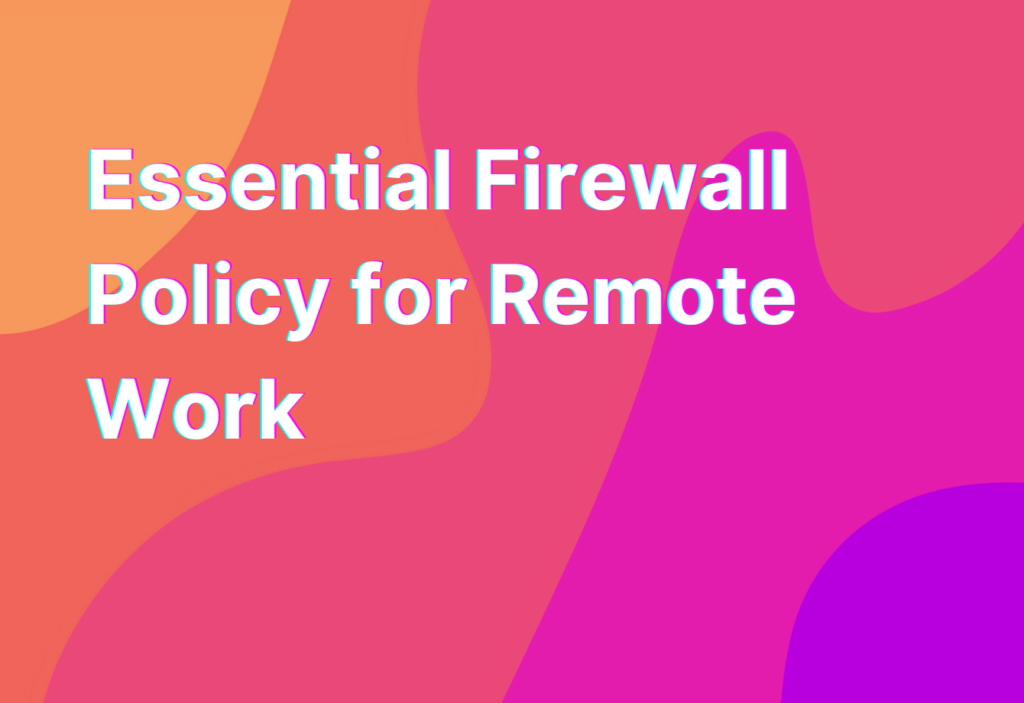Essential Firewall Policy for Remote Work
Hey there, remote work warriors! It’s Ashley here, your friendly remote work advocate with another informative blog post. Today, we’re diving into the world of firewall policies and why they are essential for remote work. So grab your favorite cup of coffee and let’s get started!
What is a Firewall Policy?
Before we jump into the nitty-gritty details, let’s make sure we’re all on the same page. A firewall policy is a set of rules and guidelines that determine how your network security system filters and controls incoming and outgoing network traffic. Think of it as a virtual bouncer that decides who gets in and who gets kicked out of your network party.
Now that we have a basic understanding of what a firewall policy is, let’s explore why it’s crucial for remote work.
Protecting Your Digital Castle
When you work remotely, your home becomes your office, and your network becomes your digital castle. Just like you wouldn’t leave the front door of your physical castle wide open, you shouldn’t leave your digital castle vulnerable to cyber threats.
A robust firewall policy acts as the first line of defense against malicious attacks, unauthorized access, and other security risks. It helps create a secure barrier between your network and the vast, sometimes treacherous, world of the internet.
The Essentials of a Firewall Policy
Now that we understand the importance of a firewall policy, let’s dive into the essential elements you should consider when creating one for your remote work setup:
- Access Control: Limiting access to your network is crucial. Only authorized users should be granted access, and even then, it’s essential to define specific permissions and restrictions based on job roles and responsibilities.
- Intrusion Detection and Prevention: Your firewall policy should include measures to detect and prevent unauthorized access attempts. This can include setting up alerts for suspicious activities and blocking IP addresses that pose a potential threat.
- Secure Remote Access: As remote workers, we rely heavily on remote access tools to connect to our company’s network. It’s crucial to ensure that these connections are secure and encrypted to prevent unauthorized access.
- Application Control: Not all applications are created equal, and some can pose significant security risks. Your firewall policy should include guidelines on which applications are allowed and which should be blocked or restricted.
- Regular Updates and Maintenance: Cyber threats are constantly evolving, so it’s essential to keep your firewall software up to date. Regular updates and maintenance ensure that your firewall policy remains effective against the latest threats.
By implementing these essential elements into your firewall policy, you’ll be well on your way to creating a secure remote work environment.
Wrapping Up
And there you have it, folks! A comprehensive guide to creating an essential firewall policy for remote work. Remember, protecting your digital castle is crucial in today’s interconnected world, and a robust firewall policy is your first line of defense.
If you want to learn more about incident management for remote work, check out this link. It’s packed with valuable information to help you handle any unexpected incidents that may arise while working remotely.
Stay safe, stay secure, and keep rocking that remote work life!


